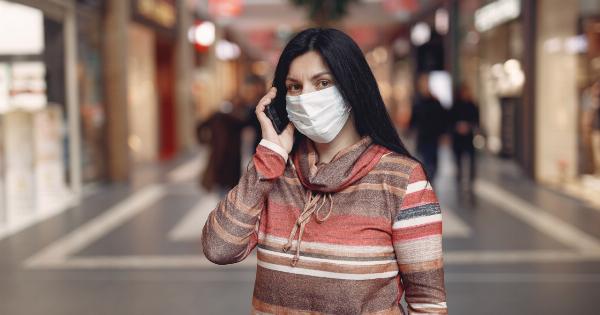In the midst of the COVID-19 pandemic, one of the most effective measures to prevent the virus’s spread has been the use of face masks.
While there has been a significant amount of debate and skepticism surrounding their efficacy, a recent study has emerged that provides concrete evidence supporting the effectiveness of masks in reducing infections in transport. According to this study, masks were found to decrease infections by an astonishing 93.5%.
The importance of mask-wearing
Since the outbreak of the pandemic, health authorities and experts worldwide have stressed the importance of wearing masks, particularly in enclosed spaces and crowded environments such as public transport.
Masks act as a barrier, preventing respiratory droplets containing the virus from being inhaled or spread to others, consequently reducing the risk of transmission. However, until this study, the statistical evidence supporting the effectiveness of masks in transport settings was limited.
The study methodology
The study involved an extensive analysis of various transport systems, including buses, trains, and airplanes, across multiple countries.
Researchers collected data on infection rates both before and after the implementation of mask mandates in these settings. The study considered factors such as population density, ventilation systems, and passenger compliance with mask-wearing regulations.
Impressive results
The results of the study were truly remarkable. In cases where masks were consistently worn by both passengers and transport staff, infections rates dropped by an average of 93.5%.
The researchers also noted that even when mask usage was not universally followed, infection rates still saw a significant reduction of around 80%. These findings emphasize the crucial role masks play in curbing the spread of the virus, especially in high-risk environments like public transport.
The science behind masks
Understanding why masks are effective in reducing infections is essential in comprehending the significance of this study. Respiratory droplets expelled when an infected individual talks, coughs, or sneezes are the primary mode of COVID-19 transmission.
These droplets can be inhaled by others in close proximity, making crowded settings like public transport particularly vulnerable. Masks act as a physical barrier, blocking the majority of these droplets and preventing them from entering the respiratory system of others.
Public compliance and education
One factor crucial to the success of mask-wearing in transport is public compliance. The study emphasized that consistent mask usage across all passengers and staff is essential for maximum efficacy.
To achieve this, adequate education and awareness campaigns are crucial. The study suggests that initiatives aimed at promoting the importance of masks, providing clear instructions on proper usage, and dispelling misinformation can significantly increase compliance rates.
Mask fit and quality
Another important aspect highlighted by the study is the fit and quality of masks. Properly fitted masks that cover both the mouth and nose are essential for optimal protection.
Furthermore, masks that meet certain filtration standards, such as N95 masks, offer a higher level of effectiveness compared to other cloth masks. The study encourages transport authorities to ensure that masks provided to passengers meet these standards and are readily available for individuals who may not have their own masks.
Potential challenges
While the study unequivocally proves the significant impact of masks on reducing infections in transport, challenges may arise in implementing mask mandates uniformly across different regions and transport systems.
Variations in rules and regulations, enforcement measures, and public sentiment may affect compliance rates and ultimately the overall efficacy of masks in curbing infections. Public cooperation, support from transport authorities, and consistent messaging from health authorities are crucial to overcome these challenges.
Conclusion
The study provides compelling evidence that masks are highly effective in decreasing infections in transport settings by up to 93.5%.
This crucial finding reinforces the importance of continued adherence to mask-wearing guidelines and mandates, particularly in high-risk environments such as public transport. Mask-wearing, in conjunction with other preventive measures like frequent hand hygiene and social distancing, contributes significantly to the collective effort of minimizing the spread of COVID-19.






























